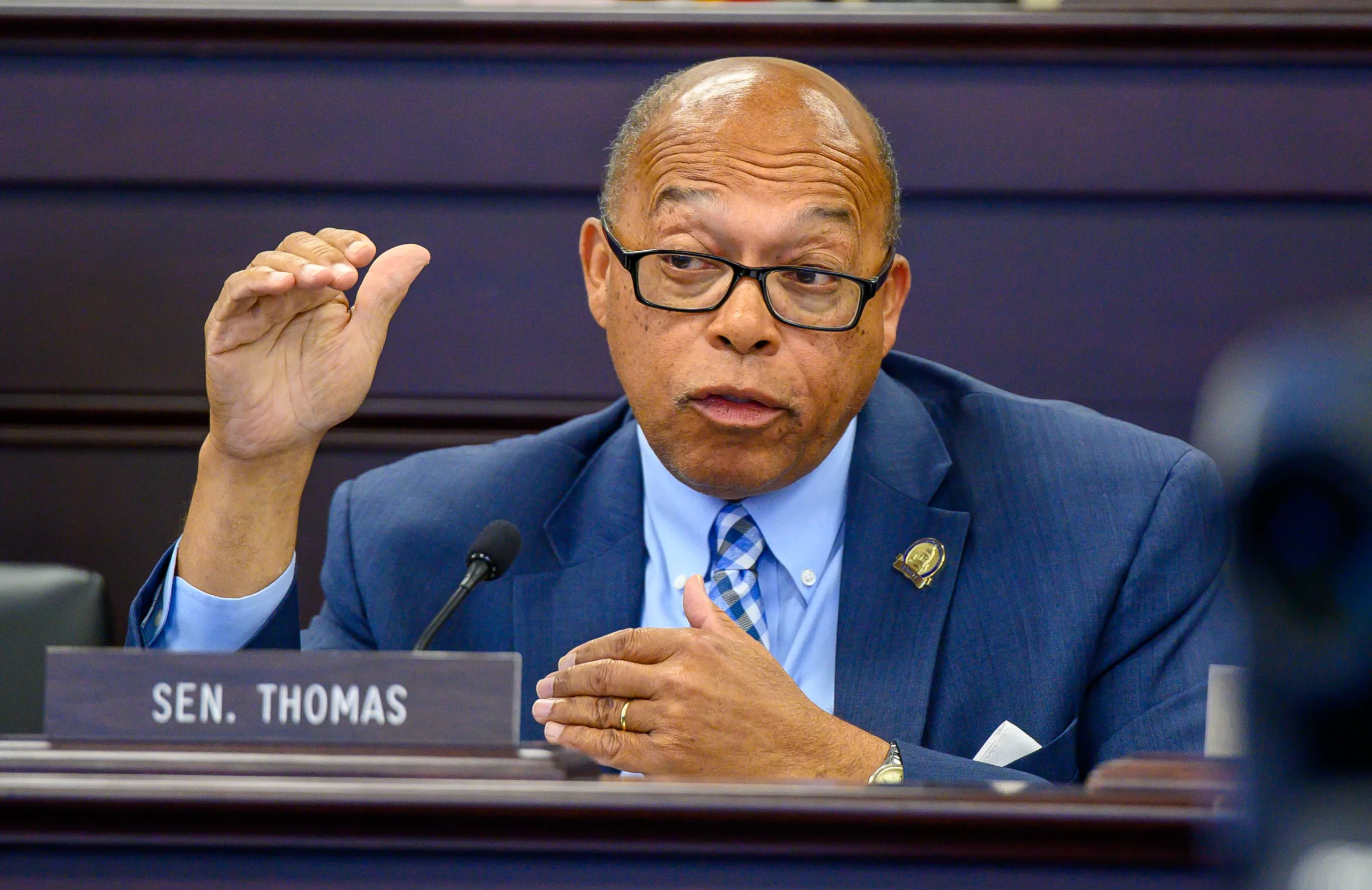Legislators discuss minimum wage, other workforce and labor market policy recommendations

by Jordan Hensley, Legislative Research Commission Public Information Office
FRANKFORT — Jobs are plentiful in Kentucky, but the state’s low workforce participation rate leaves many positions open.
Charles Aull spoke to the Interim Joint Committee on Economic Development and Workforce Investment on Monday about Kentucky’s workforce and labor market. Aull, who is the executive director at the Kentucky Chamber of Commerce Center for Policy and Research, also provided some policy recommendations.
Kentucky’s unemployment rate may be at a record low for the state, but the workforce participation rate has not recovered to pre-pandemic levels, Aull said. An aging workforce, lack of affordable child care and substance use disorder are three of the biggest factors behind low workforce participation rates.
“There are absolutely things that state policy can do, that federal policy can do and that the private sector can do to alleviate these challenges,” Aull said.
Rep. Kim King, R-Harrodsburg, asked if there’s something about this region of the U.S. that attracts more workers.
“What can Kentucky do to get up there with our neighbors?”
A warmer climate and competitive tax rates in states like Tennessee and Florida are two of the biggest factors that attract workers to the southeast and the southwest, Aull said.
Policy wise, Kentucky should focus on attracting more workers, optimizing the homegrown workforce, continuing to make Kentucky more tax competitive and reducing opioid use disorder, Aull said.
He also recommended increasing re-entry support for previously incarcerated Kentuckians and developing a statewide strategy to optimize underutilized talent in certain populations. That includes refugee and immigrant populations along with individuals with disabilities.
Some research estimates that 55,000 adult Kentuckians are not participating in the workforce due to opioid use disorder, Aull said.
“The good news is, I think this general assembly is already doing a lot,” Aull added. “What I would want to impart though to you all is not to let your foot off the gas on these issues. This will require extreme amounts of focus and dedication.”
Rep. Kevin Jackson, R-Bowling Green, said his district competes with Tennessee for employees.
“Could you give me your explanation of why Tennessee grew at a rate four times of Kentucky as far as workforce levels?” he asked.
Aull said Tennessee is more tax competitive since the state doesn’t have an income tax. Tennessee also has a large tourism industry.
On the issue of wages, Senate Minority Caucus Chair Reginald Thomas, D-Lexington, said he thinks raising the minimum wage would increase workforce participation.
“If you look at the top 10 states that have a higher workforce, you will find that most of them, not all of them but most of them, have a higher minimum wage than $7.25 an hour,” he said.
Aull said he omitted increasing the minimum wage from his list of policy recommendations because most employers have already increased wages due to market demand. Changing state law to increase the minimum wage could inadvertently hurt child care and long term care facilities, he added.
Sen. Robby Mills, R-Henderson, asked Aull if there is anything states can do to address the birth rate issue.
“Have you seen any states doing anything creative around birth rates like tax incentives?” he said.
Aull said birth rates are a global challenge as more couples start families later in life and financial issues cause people to have fewer children. But Kentucky tends to do better than other states when it comes to the birth rate.
“If you can make it I guess less expensive for families to have children, I think there’s a good chance that we would see some increase in those fertility rates,” Aull said.
The next Interim Joint Committee on Economic Development and Workforce Investment is scheduled for Aug. 23 at 9 a.m. in Frankfort. For more information, visit legislature.ky.gov.
Photo: Senate Minority Caucus Chair Reginald Thomas, D-Lexington, sharing his thoughts on increasing the minimum wage. (LRC PIO)
Recommended Posts

Kamala Harris needs a VP candidate. Could a governor fit the bill?
Fri, July 26, 2024
After cyber-attack on Jefferson County Clerk, Fayette counterpart discusses precautions
Fri, July 26, 2024
An eastern Kentucky animal shelter is swelling this summer
Fri, July 26, 2024